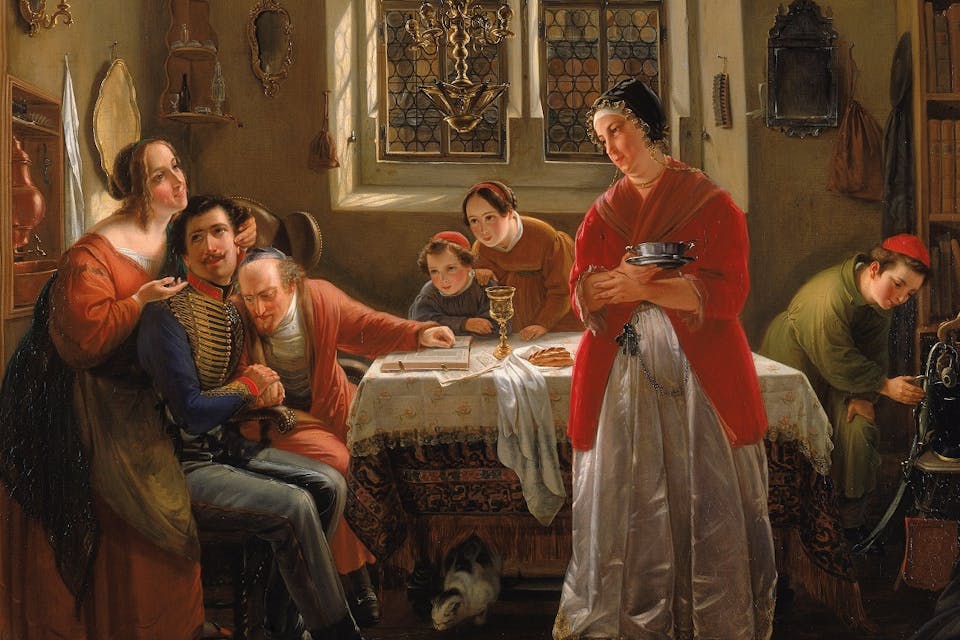
November 30, 2017
Who is Serenaded on Friday Night: the Woman of the House, or the Divine Presence?
Before the meal on Sabbath eve, the prayer book offers a song of praise to the ideal woman.
After the invitation to the angels to bless the household, and before kiddush is recited and the family sits down to the Friday-night meal, the prayer book offers a song praising the ideal woman. Known as Eyshet Ḥayil, or “woman of valor,” the song is organized as an alphabetical acrostic (i.e., each verse starts with a new letter, in alphabetical order), and is in fact the concluding passage of the biblical book of Proverbs (31:10-31).
But why should the woman of the house be serenaded on Friday night—if that’s whom the song is really addressed to?
The scholar and educator Rabbi Issachar Jacobson (1901-1972) begins his magisterial discussion of this poem with a quotation from an earlier commentary on Jewish liturgy by the German Orthodox scholar Abraham Berliner (1833-1915). According to Berliner, “the poem was not placed in the prayer book—as is today erroneously supposed—to greet the housewife who governs the home with a Sabbath blessing.” Instead, Berliner endorses the opinion of the kabbalists, who believe the poem to be addressed to the Divine Presence, the Sh’khinah—conceived as God’s feminine aspect.